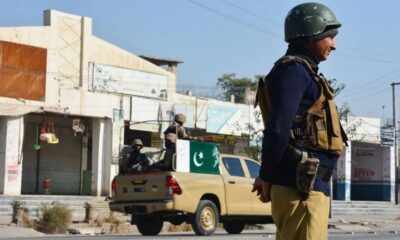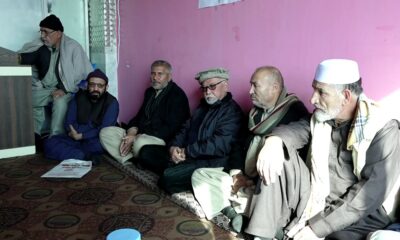Latest News
Biden Afghanistan report mostly blames Trump for chaotic US withdrawal
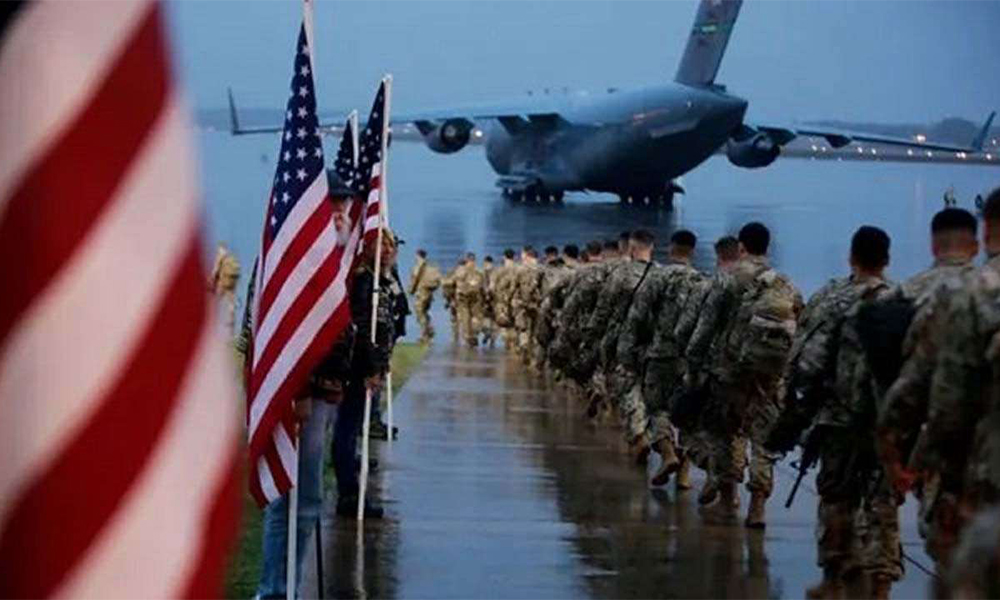
President Joe Biden's administration on Thursday released a summary of classified reports that mostly blamed the chaotic August 2021 US pullout from Afghanistan on his predecessor, Donald Trump, for failing to plan for the withdrawal he had agreed on with the Islamic Emirate of Afghanistan (IEA).
The Democratic administration's summary, drawn from top-secret State Department and Pentagon reviews sent to Congress, ignited angry reactions from Republican lawmakers who have demanded the documents for their own investigation of the pullout, Reuters reported.
Michael McCaul, the Republican chairman of the US House of Representatives Foreign Relations Committee, strongly criticized the administration. Biden ordered the pullout and was "responsible for the massive failures in planning and execution," McCaul said in a statement.
McCaul, who is overseeing the Republican probe, charged that his multiple threats to subpoena the State Department and Pentagon reviews, which were completed last year, finally compelled the administration to send them to Congress.
"President Biden’s choices for how to execute a withdrawal from Afghanistan were severely constrained by conditions created by his predecessor," said the summary of the reviews. "The outgoing administration provided no plans for how to conduct the final withdrawal or to evacuate Americans or Afghan allies."
The document acknowledged that the administration learned lessons from the withdrawal, and now errs on the side of "aggressive communication" about risks in a destabilized security environment, read the report.
The withdrawal that ended America's longest war saw tens of thousands of Afghans desperate to flee a return of Islamic Emirate of Afghanistan (IEA) rule besiege Kabul's international airport, some handing babies to US troops or breaking in and hanging onto departing aircraft, Reuters reported.
The Trump administration also "gutted" refugee support services and virtually halted the processing of Special Immigration Visas for thousands of Afghans seeking evacuation because they worked for the US government, leaving a massive backlog, the summary said.
"Transitions matter. That's the first lesson learned here. And the incoming administration wasn't afforded much of one," National Security Council spokesman John Kirby told a White House briefing.
The 12-page summary placed some responsibility for the chaos of the pullout and evacuation operation on flawed US intelligence and military assessments that failed to foresee the speed of the IEA takeover and predicted that Afghan security forces would hold Kabul, read the report.
"As late as May 2021, the assessment was still that Kabul would probably not come under serious pressure until late 2021 after US troops departed," the summary said.
Pressed on whether Biden bore any responsibility for the Kabul airport disorder, Kirby replied, "Just by dint as the commander in chief, he assumed responsibility for the orders he gives."
The 20-year war in Afghanistan, the longest conflict involving US troops, was started under President George W. Bush and furthered under President Barack Obama. Over 100,000 people were killed and about 3 million displaced, according to data from the nonpartisan Costs of War project at Brown University.
Biden pledged during his 2020 campaign to end "forever wars" and withdraw from Afghanistan, although he postponed the pullout to which Trump had agreed by three months until the end of August 2021. The US-backed Kabul government collapsed on Aug. 15 as the IEA were entering the city.
The disorganization and chaos as the US left raised questions about Biden's leadership, the quality of US intelligence and America's commitment to human rights and thousands of Afghan citizens it had relied on, read the report.
A Daesh suicide bomber on Aug. 26, 2021, killed 13 US service members and 170 Afghans as they clustered outside a gate of the airport.
Thousands of American citizens, greencard holders, and Afghans who had applied for Special Immigration Visas were unable to leave on the largest US airlift on record.
Altogether, some 100,000 Americans, greencard holders and Afghans - many of whom were not vetted - were flown out before the US withdrawal ended just shy of the 20th anniversary of the US-led invasion of Afghanistan, Reuters reported.
The Trump administration agreed in a February 2020 accord with the Islamic Emirate of Afghanistan (IEA), on the pullout of all US-led international forces by May 2021. The IEA agreed to stop attacking American troops and hold peace talks with the Western-backed Kabul government.
In laying out the withdrawal chronology, the summary said that successive troop reductions ordered by Trump had left 2,500 US troops in Afghanistan when Biden took office in January 2021. The result was that the IEA controlled or contested half the country, the summary said.
Faced with the choice of delaying the pullout or increasing the number of US forces and facing renewed IEA attacks, Biden chose the former and ordered planning for the withdrawal and evacuation operation, the summary said.
Latest News
G7 envoys urge national dialogue for lasting stability in Afghanistan

Special Representatives of the Group of Seven (G7), including the European Union, have emphasized the importance of a national dialogue for achieving long-term stability in Afghanistan.
Following a meeting on Afghanistan in Geneva, Switzerland, G7 special envoys issued a joint statement calling for the restoration of women's rights and urging the Islamic Emirate to fight terrorism.
The statement reads: "Achieving sustainable peace and stability requires credible governance that represents all segments of Afghan society."
The representatives also expressed concern over the IEA’s decision to ban girls from attending medical institutes, warning that it will have devastating consequences for the citizens, particularly mothers and their infants.
The statement described this ban as unacceptable and called on the Afghan authorities to lift it immediately.
Earlier, countries and international organizations had called for the removal of restrictions on the education and employment of women and girls, emphasizing the need for a national dialogue.
In response to these concerns, IEA has repeatedly stated that it will not allow interference in the internal affairs of the country.
The G7 special envoys also expressed their concern about the recent terrorist attacks in Kabul and the surrounding region, warning that terrorism remains a serious threat to Afghanistan's security. They confirmed the actions of the IEA against Daesh but stressed the need for more decisive measures.
Latest News
Afghanistan’s bright future lies in educating girls: Karzai
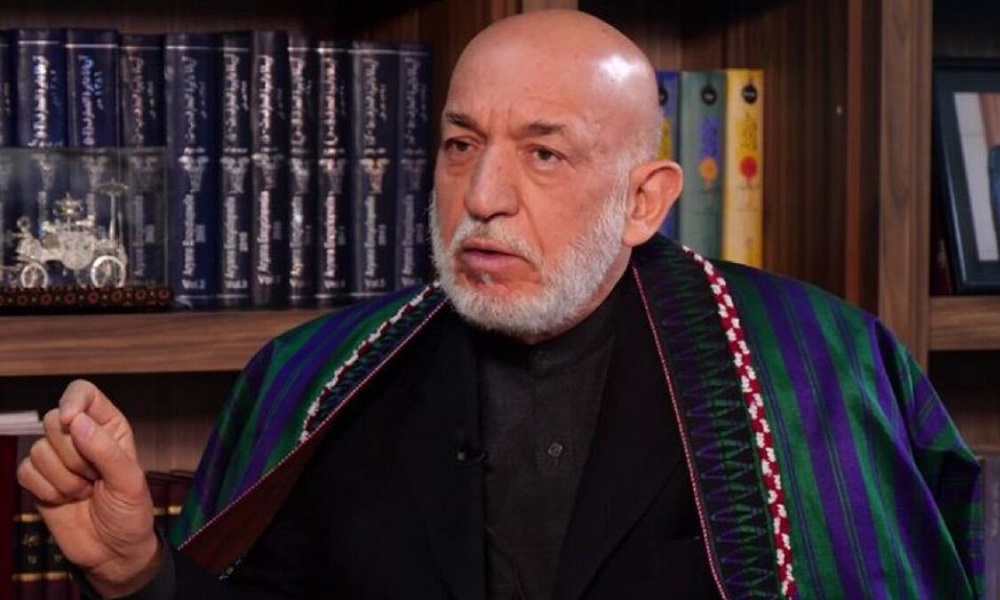
Hamid Karzai, the former president of Afghanistan, says the demand of Afghan girls for the reopening of schools and universities is their fundamental right and adds that Afghanistan cannot have a bright future without ensuring access to education for girls.
In a statement on his X (formerly Twitter) account, Karzai said: "The demand and voice of our country’s girls for education and knowledge is a rightful one and crucial for a prosperous Afghanistan."
He further emphasized, "Empowering the youth—both girls and boys—is the only way to achieve self-reliance, break the cycle of poverty, and drive the development and prosperity of society."
Karzai underscored that education is vital for Afghanistan’s growth and development, expressing hope that the doors of schools and universities for girls will be reopened as soon as possible.
Latest News
IEA to set up special courts to address pensions
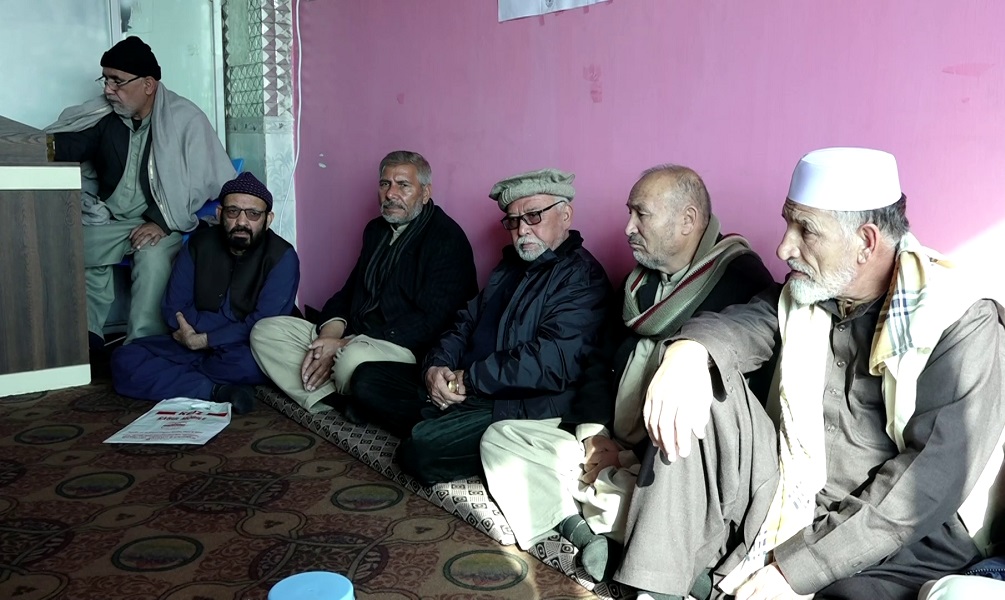
Mawlawi Hebatullah Akhundzada, the supreme leader of the Islamic Emirate of Afghanistan (IEA), has issued a decree to establish special courts to address pensions, Bakhtar news agency reported on Saturday.
According to the decree, the courts must confirm and process pensions in accordance with Sharia and law.
Pensioners have repeatedly voiced concern over delay in payment, saying that their financial challenges are growing.
Earlier this year, IEA's supreme leader banned money being deducted from salaries of government employees for pensions.
He also requested information on the tenure of employees and the total amount deducted from salaries for pensions.
-

 Sport5 days ago
Sport5 days agoATN once again seals deal to broadcast upcoming IPL across Afghanistan
-

 Sport5 days ago
Sport5 days agoLanka T10: All three matches abandoned due to rain
-

 Latest News5 days ago
Latest News5 days agoIndia hoping to import coal and marble from Afghanistan
-

 Sport4 days ago
Sport4 days agoZimbabwe’s opening ODI against Afghanistan abandoned
-

 Latest News5 days ago
Latest News5 days agoFuel prices rise in Herat as winter approaches
-

 Latest News5 days ago
Latest News5 days agoJapan announces $27.5 million aid package to Afghanistan
-

 Latest News3 days ago
Latest News3 days agoTwo horror accidents on Kabul-Kandahar highway leave 52 dead
-

 Latest News1 day ago
Latest News1 day agoAfghan men must stand with women to support viable future of country: US envoy










